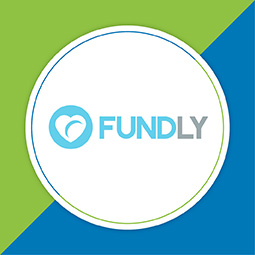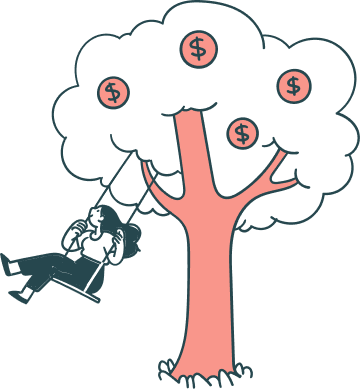Nonprofit CRM software is the most robust and comprehensive piece of technology that organizations can buy.
CRMs boast an extraordinary range of benefits, from enabling your organization to better organize and leverage data to freeing up more staff hours to cutting down on errors and inaccuracies.
But where do you start? There are so many providers and not all CRM software is created equal. In order to reap all of these many benefits, your nonprofit must find a powerful platform that can keep up with your needs.
While the perfect solution for your particular organization will depend on your unique makeup and goals, there are a few software providers to highlight and a few must-haves that all nonprofits should be looking out for when selecting new CRM software.
Before we explain what each of these features is and how they empower you to practice more successful fundraising, let’s take a look at some CRM software providers to narrow down your search!
CRM Vendor Comparison
 Snowball
Snowball
Snowball makes fundraising easy with their online donation pages, email buttons, and text giving, all part of their low-cost CRM package.
Their bottom tier plan, Snowball Basic, gives nonprofits an online donation page, the option for supporters to schedule recurring gifts, transaction and donor data reports, and unlimited admin access and accounts! The only fees you pay are a 2.9% processing fee and a deduction of 30¢ per transaction. Every Snowball user gets unlimited mobile pages, a giving widget, 2-click enabled donor list, multi-user dashboard access, and of course, full customer support.
If that’s not enough, don’t worry! Snowball Premium offers all of those services plus unlimited online donation pages, text-to-give software, QuickPay email buttons, and an event thermometer!
Salsa Labs
Salsa Labs offers a range of fundraising software that goes beyond mere data management.
Their CRM packages of course include comprehensive and customizable constituent profiles, but they also give nonprofits access to a number of useful secondary features to address areas such as event and auction planning, volunteer and membership management, grant writing, and online engagement features. Not to mention, you can add on their peer-to-peer fundraising or advocacy software for a nominal fee.
If you’re a large organization in need of advanced capabilities, Salsa has the ideal solution.
 NeonCRM
NeonCRM
NeonCRM offers nonprofit CRM software that’s perfect for a growing organization on a budget. Their most basic solution (which still includes a robust feature set!) is priced at only $50/month.
For this low price, you’ll have access to comprehensive donor profiles, relationship and household tracking, unlimited online forms, basic peer-to-peer and event planning features, campaign and cultivation management, and so much more. If you still need additional features or room for more supporters, you can upgrade to one of their more expansive packages for a (low) additional cost!
All of their packages are supported by friendly data migration, training, and maintenance services to make CRM implementation and usage as hassle-free as possible.
Fundly
Fundly CRM brands itself as an end-to-end fundraising solution—and it’s no exaggeration!
This platform is incredibly feature-rich, including tools to support you with donor relationship-building, pledge management, webform building, event planning, advocacy initiatives, and more.
And if you can’t find the feature you need already built into the nonprofit CRM software, Fundly almost certainly has one you can add on without having to worry about tricky third-party software integrations.
CRM Vendor Features
Now that you have a gallery of vendors to look through, let’s talk about the features to look for in your CRM! The services you want may shift based on your projects and cause, but here’s a general list of things to keep your eye on.
1. Comprehensive donor profiles
The primary purpose of constituent relationship management (CRM) software is to track constituent data and help nonprofits establish deeper connections with their donors and other types of supporters.
Of course, your organization doesn’t want to cut corners when it comes to your software’s main functionality. You should first and foremost be looking for CRM software that enables you to build comprehensive constituent profiles.
CRMs should include pre-set fields for tracking all essential information on your donors, such as:
- Biographical data (think: name, gender, birth date, etc.).
- Professional, personal, familial, and organizational relationships (some CRMs even enable you to group donors who live together into households).
- Contact information, including mailing and email addresses, social media profiles, and telephone numbers.
- Giving history with your organization (gift frequency, gift amount, gift type, etc.).
- Communications (when and how your organization reached out and how the donor responded).
- Other historical interactions with your nonprofit (events attended, advocacy actions taken, volunteer projects worked, etc.).
- Personal interests and affinities for certain projects or causes.
The most robust donor profiles will also support customization. You should be able to record notes (for example, helpful information you learn during meetings with donors), attach documents, and create organization-unique fields in your constituent profiles so that your database reflects your organization and how you engage donors.
The ultimate benefit of CRMs is that they enable organizations to get closer to their donors and establish a more loyal and invested supporter base, which ultimately results in more money (we all know how valuable recurring donors can be!).
In order to form these relationships, your organization must be able to connect with your donors personally. And the only way to do that is to get to know something about them!
CRM software provides you with a place to store this crucial information and keep it organized. It ensures that you’ll never lose track of your constituent relationships and can easily consult your data to make informed decisions when it comes to cultivation, communications, and stewardship.
Not to mention, CRMs centralize all of this information, providing your organization with the bigger picture. When your data sources are incomplete or isolated, you’ll catch only partial glimpses of your supporters.
In summary: CRMs have the power to bring you closer to your constituents, but only if your organization has a place to house all of the information you need to relate to them. Look for a CRM with comprehensive data-tracking to build stronger and longer-lasting donor relationships.
2. Customizable webforms
Another main functionality of nonprofit CRM software is to help organizations implement and facilitate online giving.
Most software includes form-building tools, which enable your organization to create donation pages, event registration forms, merchandise storefronts, and other types of forms for accepting online contributions.
The software you choose should not only include this feature, but should also afford you a high degree of customization. You should be able to brand your forms and mix and match the fields included on them.
By customizing, you can optimize the online giving experience for both you and your donors, since you can keep required fields to a minimum and collect the information that’s most insightful for your nonprofit. With forms that match your branding and the rest of your website, you’ll also be better able to establish trust, leading to a higher donation rate.
As one of the most convenient and accessible donation channels, online giving is an essential for any modern nonprofit.
There are multiple ways that your organization can conduct online giving, but none is as cost-effective and hassle-free as doing it through your CRM.
Since the forms you generate will stem from the software itself, all of the personal and payment data you collect during online transactions will automatically be filed in your database. You’ll also be able to track online transaction history in real-time!
With automation, your staff will no longer have to waste time on rote data entry, and you’ll be much less susceptible to error.
Plus, if your CRM has online donations capabilities built-in, you won’t have to splurge on an additional platform to address this area of your fundraising.
In summary: Since online giving is so essential in the modern nonprofit space, your organization should look for CRM software that enables you to create webforms and accept online donations. Make sure your software has plenty of customization options so that you can create something unique and trustworthy!
3. Scalable constituents
Each CRM software platform is designed to house a certain number of constituent profiles.
While some platforms pre-set a storage maximum, others start you off with a certain number of constituent profiles and then let you continually expand by paying a small fee for each new record.
Ideally, your organization should choose a platform with the latter model.
Not only are these models more flexible when it comes to accommodating your growth, but you’ll also have more control over cost. Instead of having to plan ahead and splurge on software with extra space, you can pay as you go, as your needs evolve.
Especially with the implementation of new CRM software, your organization’s donor base will hopefully only keep growing!
You need software that can keep up with you. If your software can’t grow to accommodate the new donor information you need to store, you’re going to be left with an incomplete solution sooner rather than later.
Remember: the longer your software can address your needs, the longer it will be until you have to invest the time and money into buying new software!
In summary: Plan for your future. Buy CRM software that can accommodate new constituent data as your base expands so that you get plenty of use out of your platform.
4. Scalable functionality
Number of supporters won’t be the only area in which your organization will be growing! As your organization becomes more and more established, you’ll more than likely be taking on new efforts, too.
Your nonprofit will also want to look for a CRM with an expandable feature set so that your software will be positioned to address future fundraising needs.
CRMs can be built upon in one of two ways:
- Through expansions. Expansions are additional tools and features developed by the same vendor who built your CRM software. Expansions can range anywhere from dedicated, standalone software solutions that address entire areas of your organization to highly specialized tools that rely on other CRM features to work. Expansions can often be accessed through app marketplaces hosted by the vendor.
- Through integrations. Integrations sync up a third-party platform with your CRM software. Since they’re bringing together platforms that were developed separately, integrations generally require more time and resources than expansions. Some integrations are more seamless than others; it all depends on the compatibility of the two platforms you’re trying to incorporate.
Your organization should either be working with a vendor who offers other software solutions or one who supports integrations with a range of outside platforms.
Both larger fundraising trends and organizational engagement strategies change.
Chances are that the way you’re engaging your donors in 3-5 years will be significantly different than how you’re engaging them now. It can be difficult to anticipate your exact future needs, but it never hurts to give yourself the option to expand if needed.
For example, you might decide that you need to add a membership program to your stewardship strategy. With your new program, you’ll need tools to track your members and when memberships expire. If you have fundraising software that’s flexible or has the capabilities to add expansions, this won’t be a problem.
Alternatively, if your nonprofit wants to start an advocacy campaign, it’s likely that you’ll need different tool that can adjust to your organization’s needs and help your raise awareness for your cause.
With limited software, however, you won’t have the same capabilities and might have to find new software to use in addition to your existing tools, which can cause your information to be fragmented across multiple platforms.
The more adaptable your software is, the longer it will last you. Given that software is a significant investment and that the buying process can be difficult and time-consuming, an enduring solution is a huge benefit.
The bottom line: To ensure you’re purchasing CRM software that will last for years to come, shop for a platform whose feature set can be added to through expansions and integrations.
5. Automation
The automation features in CRM software can vary significantly from platform to platform, both in terms of the number included and what they’re meant to address.
The most important automation features to look out for will ultimately depend on your organization and how you communicate with your donors. However, here are some CRM automated features that most nonprofits would find helpful:
- Automated cleaning. Many CRMs will automatically delete duplicate profiles and data fields, helping your nonprofit say organized and preventing you from inadvertently sending out the same communications twice.
- Email automation. With your CRM, you can trigger individual emails and newsletter series to send once supporters have taken certain actions. Some platforms even let you create complex email workflows that can address different engagement paths.
- Data collection. CRMs can automate much of your data entry by collecting data sources and inputting them into donor profiles for you. Depending on where you’re collecting data from, this feature might require integrations.
Of course, these are just a few of the many automation features CRMs can possess!
Automation is a huge benefit for nonprofits, especially for those with limited resources.
When equipped with plenty of automation features, CRMs can take care of many of the menial tasks that are eating up your staff time. With more hours freed up, you and your staff can focus on donor interactions and the more meaningful tasks that will get you to your fundraising goals.
Not to mention, automation narrows room for error considerably. Anytime one of your staff members is handling data or completing another task, they’re introducing human error into the equation. With a computer, human error is never a concern!
The bottom line: Using a CRM with automation features will enable you to optimize resource allocation and reduce performance errors, both of which will help you see better fundraising results!
6. Excellent vendor services
Finding a highly functional CRM doesn’t just end at the software itself. It also extends to what’s behind it all: the vendor.
Your organization should be looking out for software that’s backed by an attentive and reputable vendor. Working with an excellent vendor will help you streamline the implementation process, take advantage of the software’s full functionality, and keep your software healthy and humming for years to come.
Here’s what you should be looking out for when evaluating CRM vendors:
- Setup support. Maximizing CRM functionality starts with setting up your software properly. Seeing as this process can take difficult data transfer, customization configuration, and integrations, you’ll ideally want to work with a vendor who provides at least partial support with this process. Having an expert’s help will help you avoid errors and ensure that your software is positioned for fundraising success.
- Training. Training videos may work for some organizations, but most would benefit from customized training. While customized training options can be expensive, your organization will be able to learn how the software is applied to your particular efforts and operations. This specialized knowledge can really give you a head start when it comes to making the most of your software.
- Maintenance. Your nonprofit may be able to get away with forgoing vendor support if you have an in-house IT department. However, even tech-savvy organizations would do well to have a vendor on call if their software is ever down for some reason. Shop for a vendor who provides comprehensive IT support, meaning that they’re easy to get in touch with and resolve issues with minimal turnaround time.
When your software is supported by excellent vendor services, it will be able to function to its full power to bring you all of the benefits!
CRM software is one of the largest investments that your organization can make, and the vendor you choose has a huge bearing on how well your software works and how long it lasts you.
To illustrate why this is the case, let’s break it down by each of the services we previously discussed:
- Setup. The setup process sets the stage for how well your software will work. It’s crucial that your software has been adjusted to fit your organization and that all of your data is transferred without being lost or corrupted, or else you’ll never be able to fundraise effectively with it. This process is much more likely to be completed correctly when your vendor has a hand in it.
- Training. Every piece of software presents a learning curve. To be well versed in your CRM, you and your team will have to take the time to explore each module and learn how everything works. Vendor training acts as dedicated time for learning your software, and no one understands the interface better than your vendor!
- Maintenance. If your software is down for any reason, you won’t be able to carry on your operations as usual. While a break in your operations may not be a huge deal for a couple of days, it can have long term consequences on your fundraising if left unresolved for too long. Working with a vendor who provides speedy and accessible support will keep your fundraising momentum going.
In simpler terms, vendor services really are priceless. Take advantage of them!
The bottom line: By working with a vendor who provides excellent setup, support, and training options, your organization will always have an ally on hand to ensure your software gets you to your fundraising goals.
7. Robust reporting
Seeing as your CRM stores all constituent data and helps you administer all of your efforts, this software can run reports on practically anything.
For example, with donation history tracked in real-time, your organization can create the most accurate and comprehensive fiscal reports, which can really come in handy for sharing your activity with the government and creating transparency with your donors.
Fiscal reports are just one of the many types of reports CRMs can generate. You can analyze any data source (or sources) you have on file, from donor engagement to email marketing performance to custom queries.
That is, as long as you’re using a CRM with strong reporting and analytics features!
Reports are invaluable performance insights. They’re one of the only ways that your organization can receive objective feedback on your performance and identify areas that could be improved.
No longer will you be groping around in the dark and wasting resources making changes that don’t actually bring results.
With reports to guide you, your organization will be able to create directed strategies for improvement. You’ll keep growing your base, better engage your donors, and maximize funds raised!
In summary: Robust reporting features are priceless, since your CRM will be able to give you performance insights backed by hard data. If your nonprofit wants to keep improving (and who doesn’t?!) this feature is absolutely essential.
The features we’ve discussed are only a few of the many beneficial features that nonprofit CRMs include. However, looking out for these 7 essentials will ensure that your nonprofit is working with a powerful and flexible solution that will get you to your fundraising goals!
Ready to start shopping? Check out the top 10 CRM software providers.
Additional Resources
- Free and Low-Cost Nonprofit CRM Software: 6 Terrific Tips: Looking for a CRM software platform that won’t break the bank? Check out our curated list of the best free and low-cost CRM software providers on the market!
- Top 14 Fundraising Software Options Your Nonprofit Should Know: Nonprofit CRM software is just one of the many different kinds of nonprofit software your organization can harness. Learn more about the best fundraising software solutions out there!
- Hiring a Fundraising Consultant: 12 Essential Tips: Choosing the right nonprofit CRM software for your organization is a great first step towards achieving all of your fundraising goals. Could the next step be hiring a fundraising consultant? Take a look at this resource for more information!

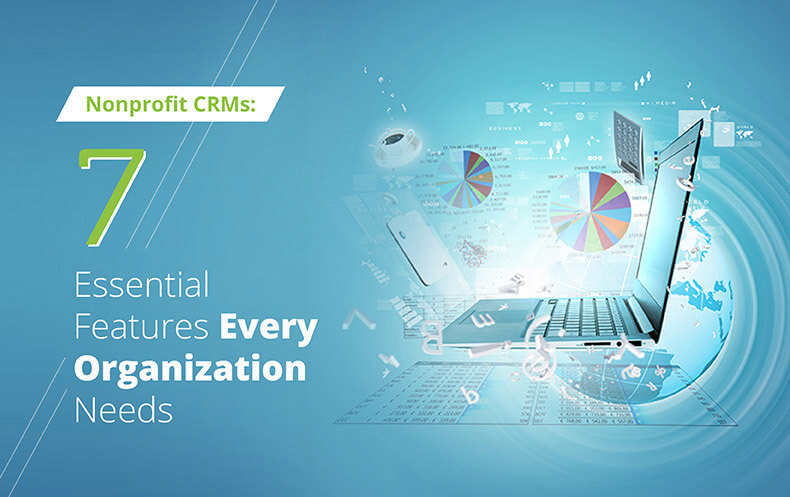

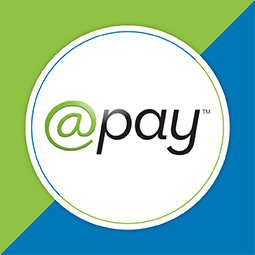 Snowball
Snowball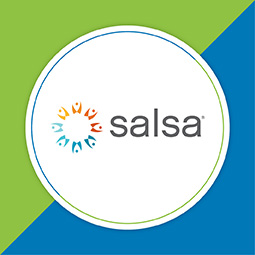
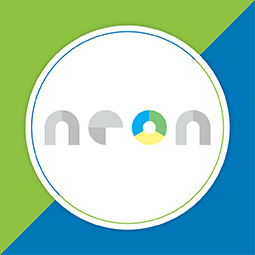 NeonCRM
NeonCRM